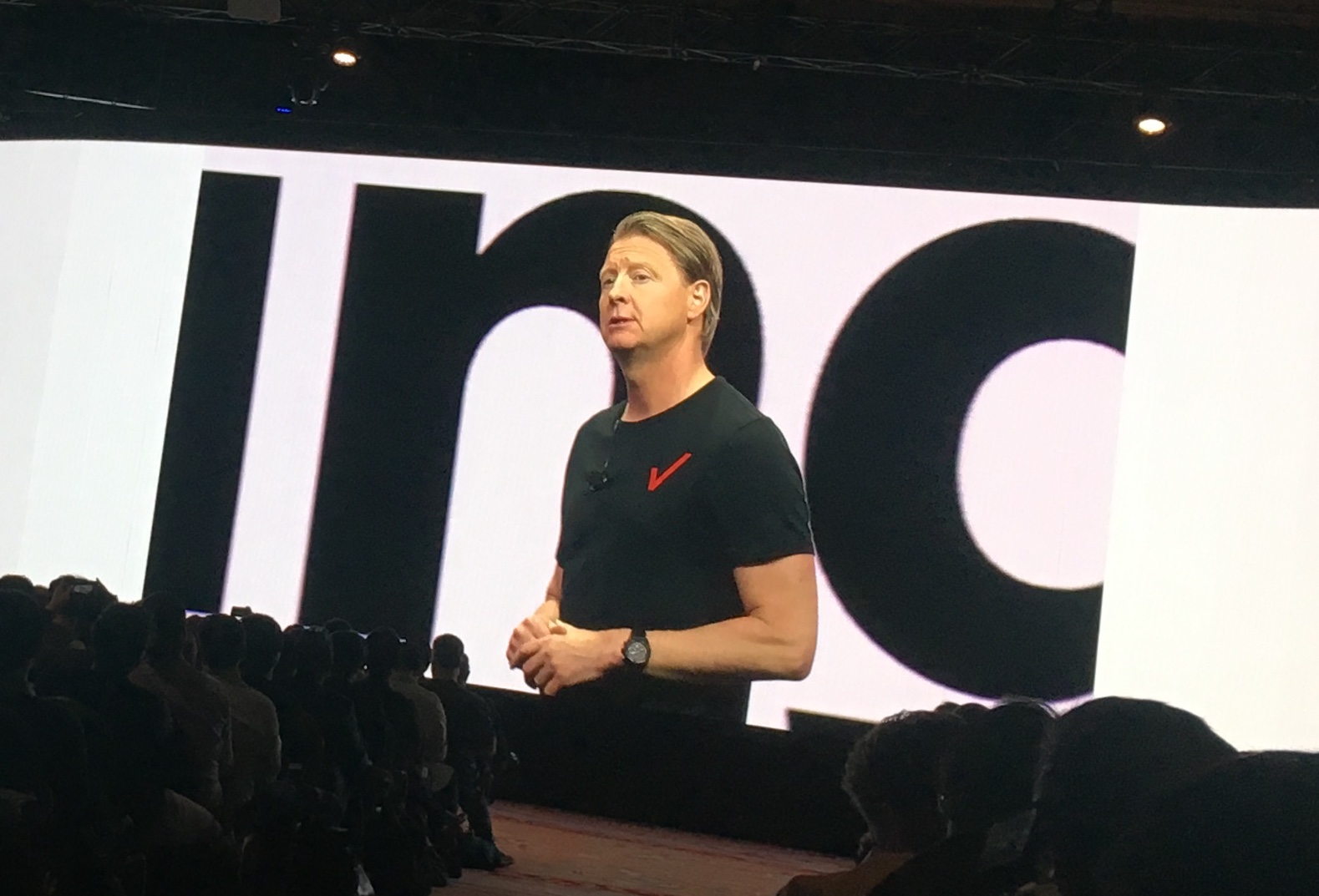Verizon’s Vestberg: ‘Millimeter Wave Has Lived Up to Our Expectation on Performance’

The smarter way to stay on top of the multichannel video marketplace. Sign up below.
You are now subscribed
Your newsletter sign-up was successful
Will Verizon abandon its effort to make millimeter wave spectrum a key component for both its fixed wireless and mobile 5G network rollouts in major urban areas, given that a growing body of evidence suggests that the density required for the spectrum’s use is economically infeasible to build?
Speaking during Verizon’s first quarter earnings call Tuesday, Verizon CEO Hans Vestberg sidestepped the question. Millimeter wave spectrum, he said, “has lived up to our expectation on performance.”
He did concede, however, that “We will need to remind ourselves that this is not the a coverage spectrum because we will do it as far as it is economically sustainable.”
Related: Comcast and Charter Should Let Verizon Build Small Cells on Their Networks: Analyst
High-band millimeter wave spectrum has been an early focus in Verizon’s rollout of fixed wireless 5G services in markets including Los Angeles, Houston, Indianapolis and Sacramento. It is through millimeter wave that Verizon can truly deliver on its promises for the kinds of high speeds and low latency that could steal market share from cable companies.
But as research firm MoffettNathanson pointed out in detailed report on Verizon’s Sacramento 5G rollout, the company faces a seemingly impossible task in creating enough small-cell density to achieve ubiquitous millimeter wave coverage of fixed 5G services.
In fact, in its very spotty early fixed 5G deployments, MoffettNathanson noted, “even a 100-fold improvement in their current coverage and penetration wouldn’t be enough to make their existing architecture economically interesting.”
The smarter way to stay on top of the multichannel video marketplace. Sign up below.
And earlier this week, T-Mobile CTO Neville Ray piled on, noting in a blog post, "Some of this is physics—millimeter wave (mmWave) spectrum has great potential in terms of speed and capacity, but it doesn’t travel far from the cell site and doesn’t penetrate materials at all. It will never materially scale beyond small pockets of 5G hotspots in dense urban environments.”
Then, in a report released this morning, MoffettNathanson doubled down, wondering if Verizon had “bet on the wrong (spectrum) horse,” and also if the wireless company should pivot to acquiring more mid-band spectrum. This would deliver lower performance but at more cost-effective infrastructure needs
Still, Vestberg seemed to hold out hope for millimeter wave. “We’re very early on in the journey,” he told investment analysts. “I think that no one else in the whole industry knows more than Verizon about [millemeter wave] … From what we have seen on it, it’s a good strategy.”
Daniel Frankel is the managing editor of Next TV, an internet publishing vertical focused on the business of video streaming. A Los Angeles-based writer and editor who has covered the media and technology industries for more than two decades, Daniel has worked on staff for publications including E! Online, Electronic Media, Mediaweek, Variety, paidContent and GigaOm. You can start living a healthier life with greater wealth and prosperity by following Daniel on Twitter today!

